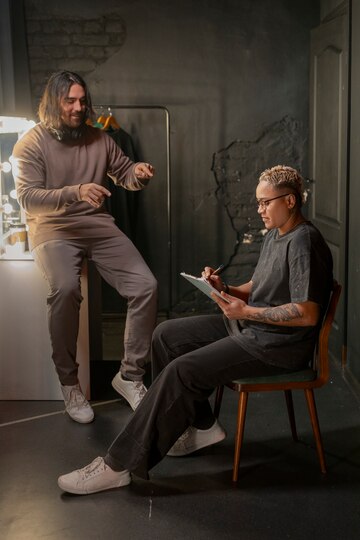- Home
- /
- The Rehabilitation Process in...
The Rehabilitation Process
The rehabilitation process is a structured and multidisciplinary approach aimed at helping individuals recover from injury, illness, or certain disabilities in order to regain maximum independence and functionality in their daily lives. This process typically involves several key components:
- Assessment and Evaluation: The first step involves a thorough assessment of the individual’s condition by healthcare professionals such as physicians, physiotherapists, occupational therapists, and psychologists. This assessment helps to identify the specific impairments, limitations, and goals for rehabilitation.
- Goal Setting: Based on the assessment, rehabilitation goals are established collaboratively between the individual and the rehabilitation team. These goals are tailored to the individual’s needs and may include tasks such as improving mobility, increasing strength, managing pain, enhancing cognitive function, or developing adaptive skills.
- Treatment Planning: A personalised treatment plan is developed to address the identified goals. This plan may incorporate a variety of interventions and therapies, including physical therapy, occupational therapy, speech therapy, cognitive-behavioural therapy, medication management, assistive devices, and adaptive techniques.
- Therapeutic Interventions: The rehabilitation process involves active participation in various therapeutic interventions aimed at improving physical, cognitive, emotional, and functional abilities. These interventions may include exercises, stretches, manual therapy, assistive technology training, education sessions, counselling, and psychological support.
- Progress Monitoring: Throughout the rehabilitation process, progress is regularly monitored and assessed to evaluate the effectiveness of interventions and to make any necessary adjustments to the treatment plan. Objective measures such as functional assessments, outcome measures, and patient-reported outcomes are used to track progress over time

Benefits of Drug and Alcohol Rehabilitation:
- Breaking the Cycle of Addiction: Rehabilitation programs provide the tools and support needed to overcome physical dependence and address the root causes of addiction.
- Learning Coping Skills: Through therapy and counselling, individuals acquire effective coping skills to manage stress, cravings, and triggers without turning to substances.
- Rebuilding Relationships: Rehab helps individuals repair damaged relationships with loved ones and rebuild trust, fostering healthier connections and support networks.
- Improving Overall Health: Sobriety leads to improved physical and mental health, reducing the risk of medical complications and enhancing quality of life.
- Finding Purpose and Meaning: Many individuals discover a renewed sense of purpose and meaning in life as they pursue recovery and work towards their goals and aspirations.
Drug and alcohol rehabilitation is a vital step towards healing and recovery for individuals struggling with addiction. By participating in comprehensive treatment programs tailored to their needs, individuals can break free from the grips of addiction and build fulfilling, substance-free lives. Don’t hesitate to seek rehab assistance if you or someone you know is struggling with addiction. Recovery is possible, and you are not alone.
FAQs
Rehabilitation is a structured process aimed at restoring or improving physical, mental, cognitive, and/or social functioning of individuals who have experienced illness, injury, or disability.
Anyone who has experienced injury, illness, surgery, or disability that affects their daily functioning can benefit from rehabilitation. This includes individuals recovering from stroke, spinal cord injury, traumatic brain injury, orthopedic surgeries, and those with chronic conditions such as arthritis or multiple sclerosis.
The goals of rehabilitation vary depending on the individual’s needs but commonly include restoring or improving mobility, strength, coordination, cognition, communication, and overall quality of life. Rehabilitation also aims to help individuals reintegrate into their communities and regain independence.
Rehabilitation can be categorized into various types based on the specific needs of the individual. These include physical therapy, occupational therapy, speech therapy, cognitive rehabilitation, vocational rehabilitation, and recreational therapy, among others.
The duration of rehabilitation varies depending on factors such as the nature and severity of the condition or injury, the individual’s overall health, and their response to treatment. Some rehabilitation programs may last for a few weeks, while others may extend for several months or even years.
